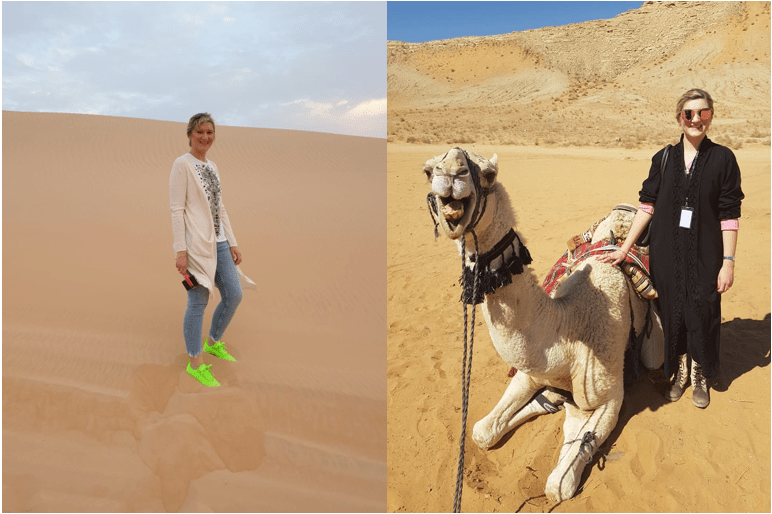What happens when those tasked with protecting international human rights are those who abuse them?
When UNE PhD student Simona Lisa Strungaru delves into her PhD research, she’ll be uncovering harrowing incidents of abuses of power on UN peacekeeping operations, when peacekeepers have perpetrated violence against vulnerable people.
“The core issue for my study lies in the discrepancy between the UN’s discourse of ‘peace’, and the actions of peacekeepers in violation of their mandates and of fundamental human rights,” she says.
It’s a distressing issue, but Simona hopes her work in highlighting the stories will give voice to the victims of the abuse that is often lost in a tangle of red tape, and that it will stimulate conversation around the efficacy of the UN’s policies and processes.
She’ll be conducting interviews and analysing texts, statements, policies and reports to uncover the issues that enable this sexual exploitation and abuse, and the impediments to bringing perpetrators to justice.
“It’s a grave and harrowing issue that is being perpetrated all over the world against vulnerable host nation women and children,” Simona says.
“The injustices endured by a minority reveal discrepancies in the existing systems, institutions and societies that impede the progression and realisation of human rights for all.
“Despite the introduction of numerous policies such as the ‘zero-tolerance’ to abuse policy and ‘gender inclusive’ strategies, such as efforts to increase women’s participation and presence in peacekeeping, there continues to be a lack of concerted effort on the part of the UN to fully address and eliminate the problem of sexual exploitation and abuse,” she says.
So far, she has discovered that the UN is “procedural-based”, “process-drive” and “hierarchically convoluted”. The result? “It makes systems for reporting abuse incredibly complicated and inefficient, with cases being significantly underreported,” Simona says.
“Also, there is almost no accountability for peacekeepers who have perpetrated abuse. One of the most important things I’ve discovered, is that whistle-blowers who have reported on cases or situations of abuse have faced retaliation or dismissal by the UN.
“There is a lack of measures to ensure the protection of whistle-blowers.”
Simona is currently interviewing a range of high-profile human rights advocates and activists from various backgrounds, including non-government organisations, journalism and media, legal and policing, to understand the issues from a range of perspectives.
It’s a huge and serious topic, but not the first important human rights issue she has researched, having completed her Master of Philosophy with UNE in 2019, where she undertook case study research into child marriage incidences amongst the Syrian refugee population in Jordan.
Her interest in and understanding of a range of human rights issues particularly developed over 12 years of living in the Kingdom of Saudi Arabia.
“Saudi Arabia is an incredibly culturally and ethnically diverse country, and underwent incredible social developments and progressive strides in human rights in the time I lived there, such as, increased opportunities and rights for women, and the curtailment of the powers of the religious police, following years of issue of power and incidents of abuse,” she says.
Simona is enjoying her current project, helped along by her research support network at UNE.
“The opportunity to explore and research something that I’m passionate about is incredibly exciting and fulfilling, and I love seeing my paper develop and take shape. I love being part of the UNE higher degree research (HDR) community and seeing and hearing the success stories and incredible research being undertaken by other researchers.
“My experience at UNE has been nothing short of rewarding. The primary skills I have acquired and continue to refine are my research skills and critical thinking.
“My postgraduate studies at UNE have also helped with my communication skills, which allow me to communicate written ideas coherently and succinctly, as well as verbally, which is particularly useful in conducting interviews,” she says.
“I am very grateful for the continued support of my supervisors [UNE Sociology’s Associate Professor Jo Coghlan (principal supervisor), and Dr Christina Kenny and Prof. Alan Scott (co-supervisors)] as well as the training opportunities offered at UNE such as IT and Endnote training conducted by Library Services.”
Image: Simona’s interest in human rights issues particularly developed over 12 years of living in the Kingdom of Saudi Arabia.



Recent Comments